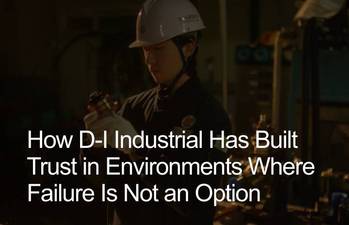ABB, HDF Energy Target Maritime Decarbonization with Fuel Cells

ABB and HDF Energy have signed a joint-development agreement (JDA) to develop a high-power fuel cell unit for marine applications.The agreement builds on an earlier Memorandum of Understanding (MoU) signed between ABB and HDF Energy in 2020, envisaging the collaboration.Foreseeing pilot installations in 2028 - 2029 and serial production from 2030, the agreement initiates a significant step forward for developing fuel cells as a commercially viable option to support maritime decarbonization.The…
Innovators Tackle Cruise Hotel Loads With and Without Fuel Cells

The Cruise Lines International Association (CLIA) reported in September that the number of member cruise line ships with the ability to use shore power has nearly doubled since 2018.Today, 166 ships are able to plug in at port, a 12% increase from the prior year. These ships represent 58% of the fleet and 65% of capacity.By 2036, 273 ships that can connect are expected to be in service.As part of the EU’s Fit for 55 decarbonization regulations, by 2030 major ports in Europe will be required to have shore power…
Bureau Veritas Greenlights Ammonia-Powered LR2 Tanker with PEM Fuel Cells
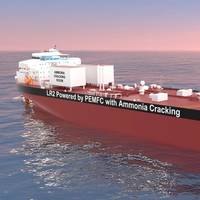
MISC Berhad (MISC) and Samsung Heavy Industries (SHI) have received the Approval in Principle (AiP) from Bureau Veritas Marine & Offshore (BV) for the design of the world’s first ammonia-fueled LR2 tanker powered by Proton Exchange Membrane Fuel Cell (PEMFC) technology.The AiP from BV confirms the technical feasibility of the concept as well as initial conformity to the applicable rules, industry codes, and standards.The AiP was awarded as part of a strategic joint development project involving MISC…
ABB Integrates 3.2MW Fuel Cell on Superyacht
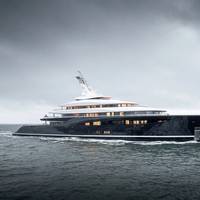
ABB has integrated a 3.2MW fuel cell system onboard Feadship Breakthrough.The vessel was constructed by Dutch high-end yacht builder Feadship. Launched in May 2025, the privately-owned 118.8-meter yacht is among the first vessels in the world to feature multi-megawatt fuel cell technology.ABB’s scope of supply comprised the Onboard DC Grid™ power system platform and two 3.2MW Azipod® electric propulsion units, which minimize noise and vibrations on board. ABB’s Power and Energy Management System PEMS™ optimizes energy use on board…
Ballard Announces 6.4 MW Fuel Cell Order to Power Samskip Vessels
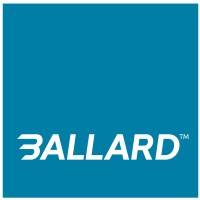
Ballard Power Systems announced the signing of a new purchase order for the supply of 6.4 MW of fuel cell engines to eCap Marine GmbH, a expert in emission free power, for deployment on two vessels by Samskip, one of the largest multimodal European operators specializing in short sea, rail, road and barge services.The 32 FCwave-200 kW engines will be integrated into green marine propulsion systems by eCap Marine and power two vessels in Samskip’s fleet to decarbonize routes between Norway and the Netherlands. The order continues Ballard’s collaboration with eCap Marine which started in 2021.
Persevering with Hydrogen as a Maritime Fuel
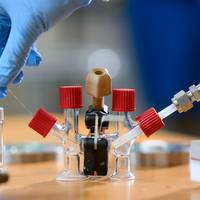
Hydrogen fuel cell power plants for ships face the challenge of hydrogen’s low volumetric energy density at normal temperature and pressure and its low electricity-to-electricity energy conversion efficiency compared to batteries.The justification for persevering with hydrogen as a marine fuel, though, is that other leading candidates for future fuels (such as e-methanol and e-ammonia) require a hydrogen feedstock for production. Therefore, hydrogen will always be less energy…
Scaling Up Hydrogen Fuel Cell Demand
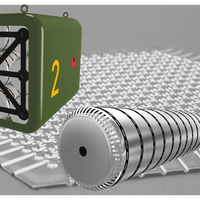
This past month Maritime Reporter TV has taken a close look at two hydrogen fuel cell projects: the new research vessel planned for Scripps Institution of Oceanography and e1 Marine’s methanol-to-hydrogen technology which is being adopted by STAX Engineering for its emissions capture barges.The Scripps California Coastal Research Vessel will feature a hydrogen fuel cell propulsion system that will allow it to operate with no greenhouse gas or other emissions for 75% of its missions – and for all of its time operating in state waters.
World’s First Hydrogen-Powered Cruise Ship to Debut 2026
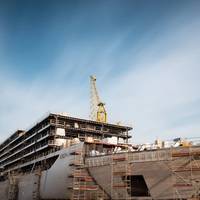
Viking and Fincantieri have announced that the Viking Libra, the world’s first hydrogen-powered cruise ship, capable of operating with zero emissions is scheduled for delivery in 2026.The vessel is already under construction at Fincantieri’s Ancona shipyard, and Viking’s subsequent ocean ship, the Viking Astrea, is also currently under construction and scheduled for delivery in 2027.Both vessels will have a hybrid propulsion system partly powered by hydrogen-fueled fuel cells…
Interim Guidelines Agreed for Training Seafarers on Green Ships
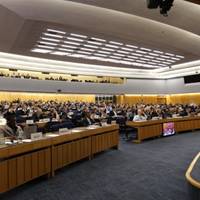
The IMO’s Sub-Committee on Human Element, Training and Watchkeeping (HTW) has agreed on draft interim generic guidelines for training seafarers working on ships powered by alternative fuels and new technologies. These draft guidelines will be submitted to the Maritime Safety Committee for approval in June 2025.Meeting in London from February 10 to 14, the Sub-Committee agreed that such guidance should be provided through both:• generic interim guidelines applicable across the whole industry and relevant to all alternative fuels and new technologies…
Meyer Werft Kicks Off Fuel Cells for Cruise Ship Retrofits Project
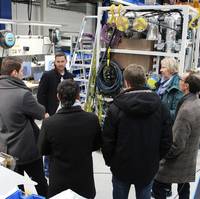
German shipyard Meyer Werft has launched the zero4cruise project with project partners including Freudenberg e-Power Systems and the German Aerospace Center (DLR).The project aims to develop climate-friendly and low emission energy systems for cruise ships, focusing on fuel cell technology powered by green methanol.The hybrid energy system will combine PEM fuel cells with a methanol reformer and battery systems to optimize efficiency and ensure ships can operate carbon-neutral…
The Technology Pathways that Lead to Fuel Cells
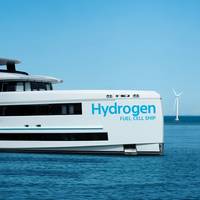
In an article by Rhonda Moniz published this week on MarineLink, Siemens sales executive Ed Schwarz noted the flexibility provided by an electric distribution “backbone” that enables ferry operators to add more batteries, switch to new fuels or become 100% emission free with fuel cells.A string of deliveries reported this week demonstrate that steps are being taken along this pathway for a range of vessels:The hull of Lithuania’s first green hydrogen and electricity-powered ship was launched by the Klaipėda State Seaport Authority.
Students to Demonstrate Potential of Liquified Hydrogen
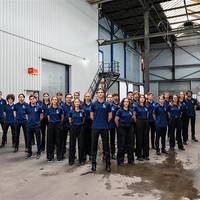
The 2025 TU Delft Hydro Motion Team, a team of 25 adult students, has designed a hydrofoiling boat that will be powered by liquified hydrogen.Their project builds on the work of previous students at the Dutch university in a program dating back to 2005.The first TU Delft design was solar powered; it was changed to compressed hydrogen in 2021.The 2024 team focused on applying hydrogen fuel to a seaworthy vessel and made history as the first hydrogen-powered boat to cross the North Sea.The 2025 team’s boat will be entered in the Monaco Sea Lab 2025.
RED II Compliance Demonstrated for Potential Compressed Hydrogen Supply Chain
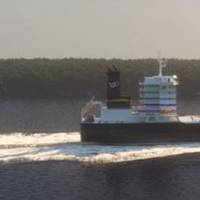
Provaris Energy has released preliminary results for meeting Europe’s Renewable Energy Directive II (RED II) emissions standards for its bulk hydrogen shipping concept based on its proprietary H2Neo carrier sailing between Norway and Germany.Implemented in December 2018, RED II sets stringent emissions standards aimed at fostering the use of renewable energy sources and reducing greenhouse gas emissions across the European Union. RED II mandates that by 2030, at least 32% of the…
PowerCell Reports Large Order for Its Marine Fuel Cells
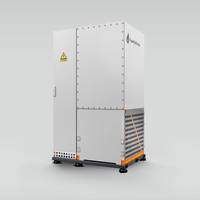
Sweden-based PowerCell Group announced it has signed one of the world’s largest orders of marine fuel cell systems to date with a Italian marine OEM manufacturer. The order value is approximately SEK 165 million (US$16.3 million) and the deliveries will begin in the middle of 2025 and be completed by the end of the year.The order is in three parts and consists of 56 units of the Marine System 225 in total where the majority will be installed on commercial cruise ships. The fuel cell systems will provide auxiliary power to a ship’s internal electricity systems, totaling more than 6.3 MW.
LR Partners with Amogy and RotoBoost to Slash Maritime Emissions
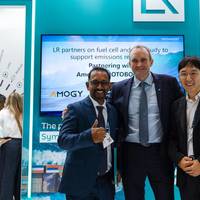
Classification society Lloyd’s Register (LR) is collaborating with Amogy and RotoBoost in a study aimed at reducing emissions in the maritime industry. The joint development project (JDP) will assess the potential of advanced technologies such as hydrogen fuel cells, ammonia-to-power systems, and pre-combustion Carbon Dioxide Capture Storage (CCS) systems from technical, financial, and regulatory perspectives.This partnership marks a significant step toward evaluating how these…
Methanol Reformer and Fuel Cell System Gains DNV AIP
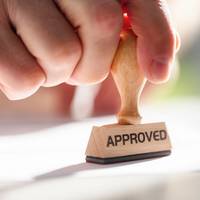
PowerCell Group has secured an approval in principle (AIP) from classification society DNV for its methanol-to-power solution. The system integrates a methanol reformer from RIX Industries with the PowerCell Marine System 225, recently launched to aid in the maritime industry's shift toward cleaner energy sources.Methanol is emerging as a promising alternative fuel alongside hydrogen, contributing to maritime decarbonization and electrification. Given its availability in major global ports…
Corvus' Pelican Fuel Cell System Awarded DNV Type Approval
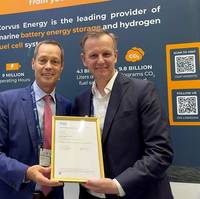
Corvus Energy announced that the Corvus Pelican Fuel Cell System has received Type Approval from DNV. The system, which was developed through the three-year-long H2NOR project, is the first Fuel Cell System (FCS) designed to be inherently gas-safe.Receiving type approval from DNV, a leading maritime classification society, confirms that the Corvus Pelican Fuel Cell System meets the most stringent performance and safety standards required by the maritime industry. Olaf Drews, Head of Engines & Pressurized Equipment Maritime…
Samskip Joins Fuel Cell Retrofit Project
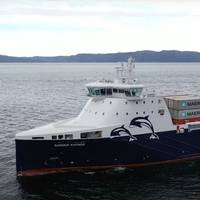
Samskip has joined the EU HyEkoTank project and its LNG-fueled vessel Kvitnos will be retrofitted with TECO 2030’s zero-emission technology.Samskip Kvitnos, built in 2015, is a cargo ship which operates in a fixed route on a weekly multipurpose service from Rotterdam, along the Norwegian west coast, to Hammerfest. The project also aims to facilitate long-term hydrogen fuel supply contracts due to the vessel’s fixed route.The HyEkoTank project is the world’s largest ongoing fuel cell retrofit project…
Blue World Wraps Up Trials of 200kW Green Methanol Maritime Fuell Cell System
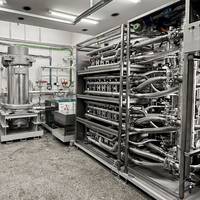
Denmark-based Blue World Technologies has completed the testing of the world’s first 200 kW high-temperature PEM fuel cell module, exceeding performance expectation of the system which aims to contribute to the decarbonization of the maritime industry.The test was completed at the newly established test facilities in connection to the Blue Aalborg Factory, where the fuel cells for the system are produced. The initial testing has been completed with great results which has exceeded performance expectations…
Samskip LNG Vessel to be Retrofitted with Fuel Cells
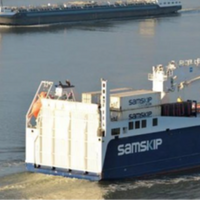
TECO 2030, BLOM Maritime and Samskip have received a grant for a pre-project aiming to retrofit Samskip’s vessel Kvitnos with TECO 2030 fuel cells and hydrogen fuel.The project aims to significantly reduce emissions from this LNG-fueled vessel, which currently operates on a weekly multipurpose service from Rotterdam along most of the Norwegian coastline to Hammerfest.The goal of the project is to prepare for an investment decision to retrofit Kvitnos. The project also aims to…
KR Signs MoU on Ammonia Fuel Cell Systems
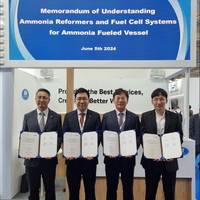
KR has signed a Memorandum of Understanding (MoU) with Hanwha Ocean, Amogy, and Hanwha Aerospace at Posidonia 2024 for the technical collaboration and certification of ammonia reformers and ammonia fuel cell systems on ships.The ammonia reformers, used to produce gas with hydrogen as the main component and supply it to fuel cell stacks, are essential equipment for the adoption of fuel cell systems, says KR.The MoU encompasses design, development, testing, and certification of ammonia reformers and fuel cell systems.
TECO 2030’s Fuel Cell Running at 100% Capacity in Test Bed
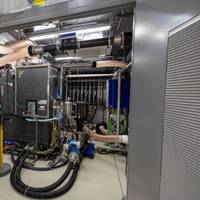
TECO 2030 has successfully reached stable and maximum power output of zero emission hydrogen-electric power with its fuel cell system at AVL's test bed in Graz, Austria.TECO 2030’s fuel cell technology features a modular system with installed power capacity of 400kW. This includes high energy efficiency, an inherent safety concept, optimal weight and size dimensions, advanced component design, extended lifespan, and rapid dynamic load response.“This milestone is the biggest one so far in the history of TECO 2030 Group…
Report Analyses Fuel Cells for Deepsea Vessels
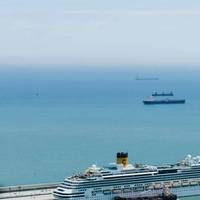
The Mærsk Mc-Kinney Møller Center for Zero Carbon Shipping has released a report providing a techno-economic assessment of fuel cell applications for onboard auxiliary power for deepsea vessels.The reportindicates that it appears unrealistic to assume that fuel cells will compete with or entirely replace onboard internal combustion engines in the near future, even as fuel cells reach a high technological maturity level. This is due to the high initial costs currently associated…



